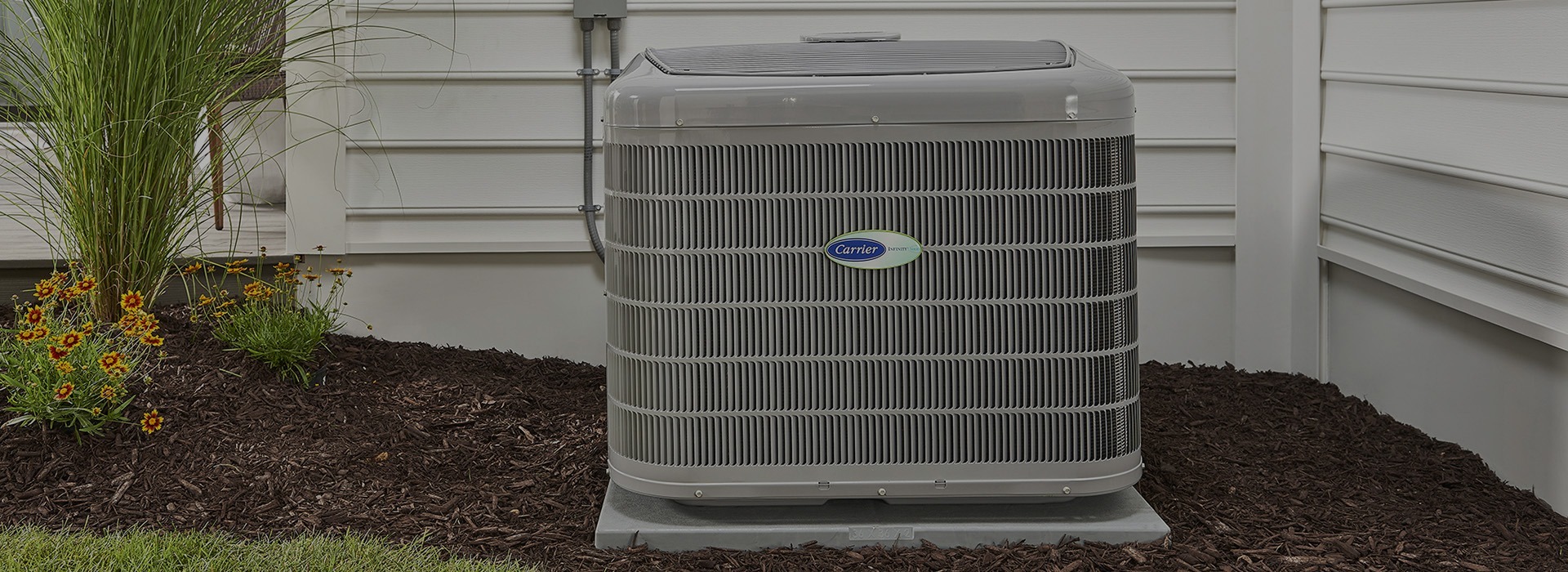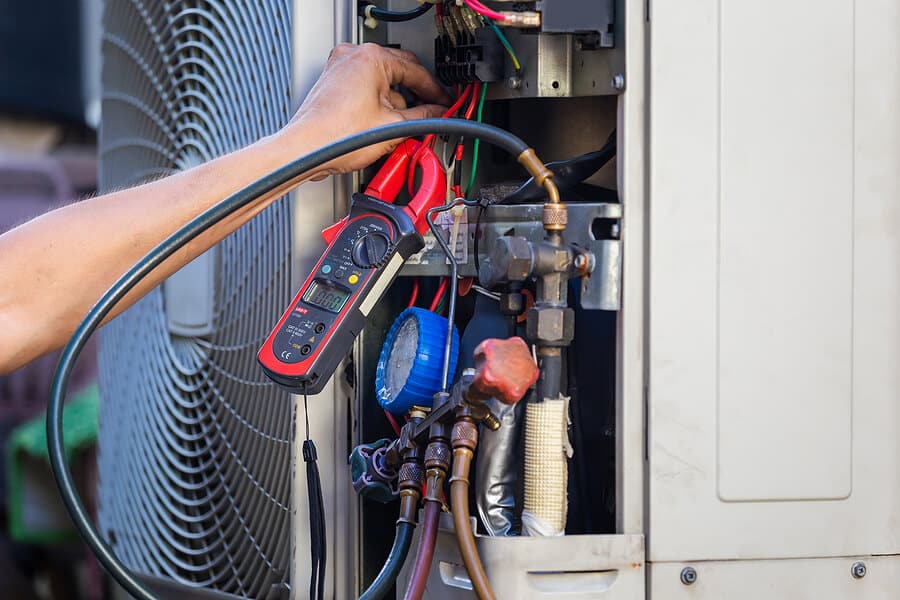Professional Maintenance Services by DMAKS HVAC You Can Trust.
Professional Maintenance Services by DMAKS HVAC You Can Trust.
Blog Article
Energy-Efficient A/c Equipments to Save on Utility Bills
As energy prices continue to increase, the significance of energy-efficient cooling and heating systems ends up being significantly obvious. These systems not only guarantee considerable financial savings on utility costs but likewise add to a more lasting future by reducing energy intake. With various choices available, including geothermal warmth pumps and ductless mini-splits, residential or commercial property owners deal with a multitude of options that can improve convenience and air high quality. However, understanding the vital attributes and upkeep demands is necessary to maximizing these advantages. What aspects should be focused on when choosing the best system for your needs?
Advantages of Energy-Efficient HVAC Systems
Energy-efficient A/c systems offer countless benefits that extend beyond plain expense financial savings. By eating less energy, these systems contribute to reduce greenhouse gas emissions, aiding to combat climate adjustment and advertise sustainability.
Additionally, energy-efficient HVAC systems typically supply boosted convenience levels. Much of these systems feature advanced innovation that allows for far better temperature control and improved air high quality (DMAKS HVAC). This results in a much healthier indoor setting, which is specifically essential for individuals with allergic reactions or respiratory problems
Additionally, purchasing energy-efficient HVAC systems can improve residential or commercial property value. As even more consumers focus on energy efficiency, homes and buildings furnished with these systems might draw in higher bids in the realty market.
Kinds Of Energy-Efficient Cooling And Heating Options
Exactly how can property owners and organizations pick the most appropriate energy-efficient cooling and heating choices for their requirements? The market offers a selection of energy-efficient cooling and heating systems, each made to boost convenience while reducing energy intake.
One choice is the variable cooling agent flow (VRF) system, which successfully controls the temperature level in numerous zones within a structure. This system adjusts its refrigerant flow to match the preferred temperature, causing substantial energy financial savings.
An additional preferred selection is geothermal warmth pumps, which use the planet's stable temperature level to heat and cool areas. By moving warmth to and from the ground, these systems show excellent efficiency, particularly in moderate environments.
Additionally, ductless mini-split systems give an energy-efficient option for homes lacking ductwork. These systems permit for zone-specific cooling and heating, decreasing energy waste in vacant areas.
Lastly, high-efficiency heaters and air conditioning unit, with advanced SEER and AFUE scores, provide dependable environment control while taking in much less power than conventional designs. By examining these choices, house owners and organizations can pick a HVAC system tailored to their certain needs and energy effectiveness objectives.
Key Features to Think About

Following, explore the kind of compressor utilized in the system. DMAKS HVAC. Variable-speed compressors can readjust their output to match the heating or cooling down need, causing improved convenience and energy savings compared to single-speed models. Furthermore, try to find systems outfitted with wise thermostats that offer programmable settings and remote access, permitting far better control over power usage
Another critical attribute is the system's air filtration capability. High-efficiency filters can boost interior air top quality and lower power intake by making certain the system operates successfully. Consider the type of refrigerant utilized; contemporary systems often use environment-friendly cooling agents that have a reduced environmental effect.
Last but not least, make certain that the system works with zoning technology, which permits tailored temperature control in various locations of your home, improving convenience while minimizing energy use.
Tips for Selecting the Right System


Next, consider energy effectiveness ratings, particularly the Seasonal Energy Effectiveness Proportion (SEER) for cooling systems and the Yearly Fuel Use Effectiveness (AFUE) for heater. Higher ratings indicate greater effectiveness, which can cause considerable cost savings on utility costs over time.
Additionally, examine the sort of a/c system that best fits your lifestyle and budget plan. Options consist of central air conditioning, ductless mini-splits, and heatpump, each with its own collection of advantages and drawbacks.
Don't overlook the relevance of correct installation and sizing; an inaccurately sized system can lead to ineffectiveness and increased wear. Seek advice from with an expert A/c service provider to obtain experienced recommendations tailored to your home's distinct needs. This detailed approach will guarantee that you select an energy-efficient cooling and heating system that satisfies your demands and spending plan effectively.
Maintenance for Ideal Effectiveness
When the best a/c system is in place, recurring upkeep ends up being crucial to ensuring ideal effectiveness and longevity. A well-kept system operates much more successfully, causing lower energy intake and lowered utility expenses. Normal examinations and tune-ups ought to be scheduled at the very least two times a year-- when before the air conditioning period and when prior to the heating season.

Property owners should additionally be attentive about monitoring their HVAC system's performance. Unusual sounds, varying temperature levels, or boosted energy expenses can suggest underlying problems that call for instant focus. By resolving these concerns quickly, property owners can avoid expensive repair work and expand the life expectancy of their systems.
Purchasing an top article upkeep strategy with a certified technician not only enhances performance but also supplies peace of mind, knowing that the system is operating at its finest. DMAKS HVAC. Routine upkeep is therefore vital for sustaining energy effectiveness and lowering overall functional prices
Final Thought
To conclude, energy-efficient heating and cooling systems present a feasible service for lowering utility expenses while enhancing comfort and air high quality. By incorporating innovative innovations and options such as geothermal heatpump and ductless mini-splits, homeowner can his explanation achieve substantial energy savings and add to environmental sustainability. Mindful factor to consider of system features and ongoing maintenance additionally ensures optimal efficiency, making energy-efficient systems a prudent financial investment for both economic and eco-friendly benefits.
Report this page